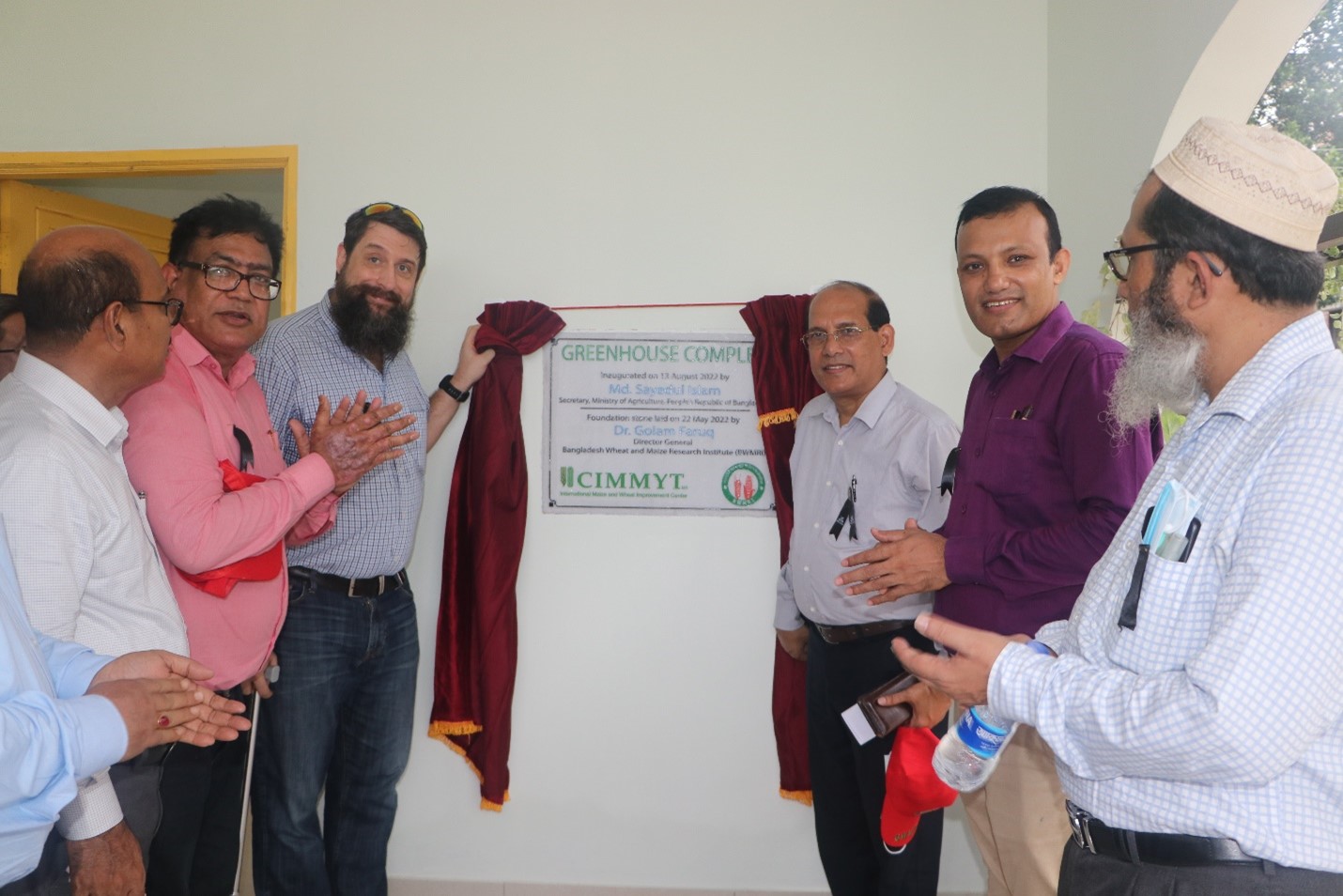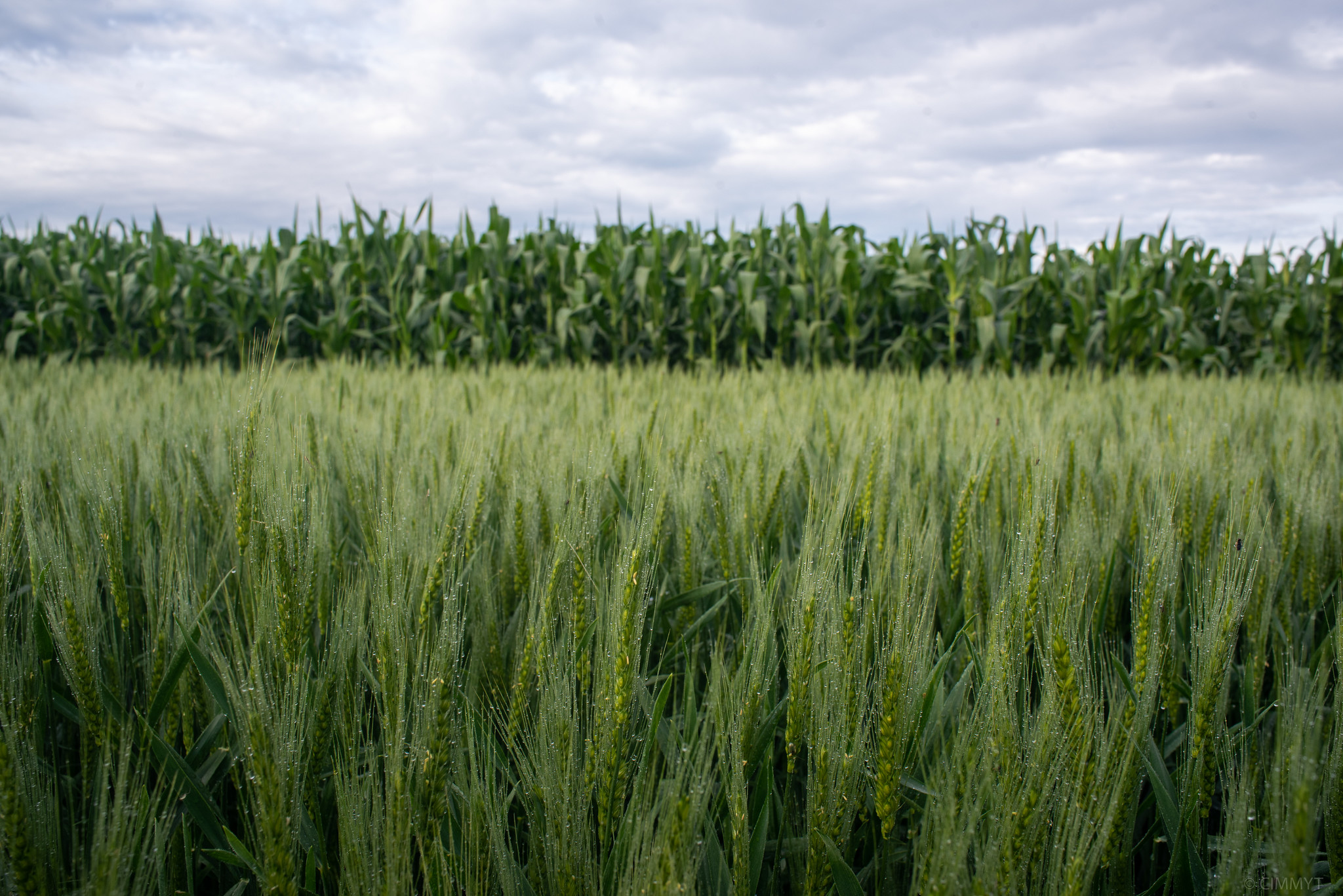
Representatives from Australian Centre for International Agricultural Research (ACIAR) and Bangladesh Agricultural Research Council (BARC) paid a visit to Bangladesh to see the valuable work of the Precision Phenotyping Platform (PPP).
PPP was established in response to the devastating wheat blast disease, which was first reported in the country in 2016.
Technical and financial support from the International Maize and Wheat Improvement Center (CIMMYT), the Australian Commission for International Agricultural Research and the Australian Centre for International Agricultural Research, along with other funders, has contributed to the effort to combat the disease.
This is achieved by generating precise data for wheat blast resistance in germplasm in Bangladesh, as well as other wheat growing countries. This PPP has been used to screen elite lines and genetic resources from various countries.
On February 16 and 17, 2023, two groups of national and international delegations visited the BWMRI-CIMMYT collaborative research platform PPP at the BWMRI regional station in Jashore, Bangladesh.
The first group was made up of representatives from both the Australian Commission for International Agricultural Research and the Australian Centre for International Agricultural Research. This included seven commissioners under the direction of Fiona Simson, along with ACIAR senior officials from Australia and India.
The other group was from BARC, which was led by Executive Chairman Shaikh Mohammad Bokhtiar, along with Golam Faruq, Director General of BWMRI, and Andrew Sharpe, Bangabandhu Research Chair, Global Institute of Food Security (GIFS), University of Saskatchewan in Canada.
Both delegations were welcomed by Muhammad Rezaul Kabir, the Senior Wheat Breeder at BWMRI. Kabir gave a brief presentation about the platform and other wheat blast collaborative research programs in the seminar room.
The delegations then went to the PPP field, where BWMRI researchers Kabir and Robiul Islam, as well as CIMMYT researcher Md. Harun-Or-Rashid, explained further information about the BWMRI-CIMMYT collaborative research. Both commissioners and delegates appreciated seeing the work being conducted in person by the national and international collaborations of BWMRI and CIMMYT on wheat blast research.

“It is important, innovative work, that is affecting not only Bangladesh but many countries around the world that are now starting to be concerned about the impacts of wheat blast,” commissioner Simson said. “This study is very important for Australia and we are pleased to be contributing to it.”
Lindsay Falvey, another commissioner, added, “This is a wonderful experiment, using high-level science and technologies to combat wheat blast in Bangladesh. The experiment is well-planned. Overall, it is an excellent platform.”
ACIAR delegate Eric Huttner added to the praise for the project. “The platform is performing extremely well for the purpose of evaluating lines, resistance to the disease and that’s very useful for Bangladesh and rest of the world,” he said. “This is a gift that Bangladesh is giving to the neighboring countries to protect wheat.”
The delegates pledged to share their expert advice with the Minister of Foreign Affairs in Bangladesh in order to increase investments and improve facilities for agricultural research programs in the country.

“This is an excellent work,” Executive Chairman of BARC, Bokhtiar said. “We can get more information from screening activities by using bioinformatics tools and training people through the BARC-GIFS program.”
Pawan Kumar Singh, Head of Wheat Pathology at CIMMYT-Mexico and Project Leader, coordinated the visits virtually and expressed his thanks to the delegations for their visit to the platform. This PPP, within a short span of few years, has been highly impactful, characterizing more than 15,000 entries and releasing several resistant varieties in countries vulnerable to wheat blast.

 Capacity development
Capacity development 